“Predictions are hard, especially about the future.”
Niels Bohr
Nobel Laureate in Physics
Some would call it foolish to try to predict how the Trump administration and the 115th Congress will shape health care in 2017, but here it goes anyway!
I think it is safe to assume that value-based payment is likely to survive, but it may look different in terms of structure. The HHS secretary-nominee, Dr. Tom Price, is not a fan of mandatory initiatives, such as the Comprehensive Care for Joint Replacement (CJR) bundled payment program which began in April last year. The CMS Innovation Center (CMMI) has been the source of several new alternative payment models under President Obama, but it is possible that Republicans will seek to eliminate the CMMI or at least reduce its role.
Since there is bipartisan support for the need to reduce health care spending, we will continue to see innovative payment models. However, we might see more voluntary models, with participation dictated by the private market rather than government-led initiatives. Several commercial insurers have already adopted bundled payment models and many large employers around the country continue to pursue lower-cost delivery alternatives for providing health care to their employees. Though the types of health care delivery models may look different in the coming years, the need for health care delivery reform is not going away.
Here is a prediction in which I am absolutely sure: Infinity Rehab will continue to aggressively pursue its strategic plan for therapy delivery reform driven by our vision, which states:
Infinity Rehab will lead a post-acute care revolution by relentlessly pursuing unparalleled quality, value, and patient, customer, and employee experience. We will create an irresistible culture that inspires individuals to grow as leaders, clinicians, and innovators.
No matter whether it is Obamacare or Trumpcare, Infinity’s roadmap is absolutely aligned with a healthcare environment that is shifting toward rewarding value and outcomes and away from paying for volume of care. To accomplish this, we developed a plan several years ago, accompanied by very specific strategies that focuses around leadership and professional development, as well as quality improvement and outcomes standardization.
In subsequent articles, you will hear from those responsible for leading several of these initiatives. For example, Holly Winick, VP of HR, and Derek Fenwick, Director of Professional Development, will describe their charter for developing the Infinity Rehab workforce to be the strongest group of clinicians, managers, and leaders found anywhere in the industry. They will share successes in 2016 as well as their objectives towards this aim in 2017.
Patty Scheets, Vice President of Quality & Clinical Outcomes, will describe the progress made in 2016 towards our aim of ensuring that all patients treated by Infinity therapists achieve critical thresholds on outcome measures of health status and function. She will also describe how she plans to use the outcomes data Infinity therapists have so diligently collected the past two years and continue to do so on a daily basis to help determine the most cost effective delivery strategies.
I hope it is apparent how important these two initiatives are for success in a reformed health care environment. Each Infinity employee is a critical ingredient as to whether we meet our goals, which is why so many were actively involved last year in pilot projects, leadership and management training, and practice councils. And we will have even greater participation in 2017.
Warm regards,
Mike Billings, PT, DHSc, CEEAA – President






